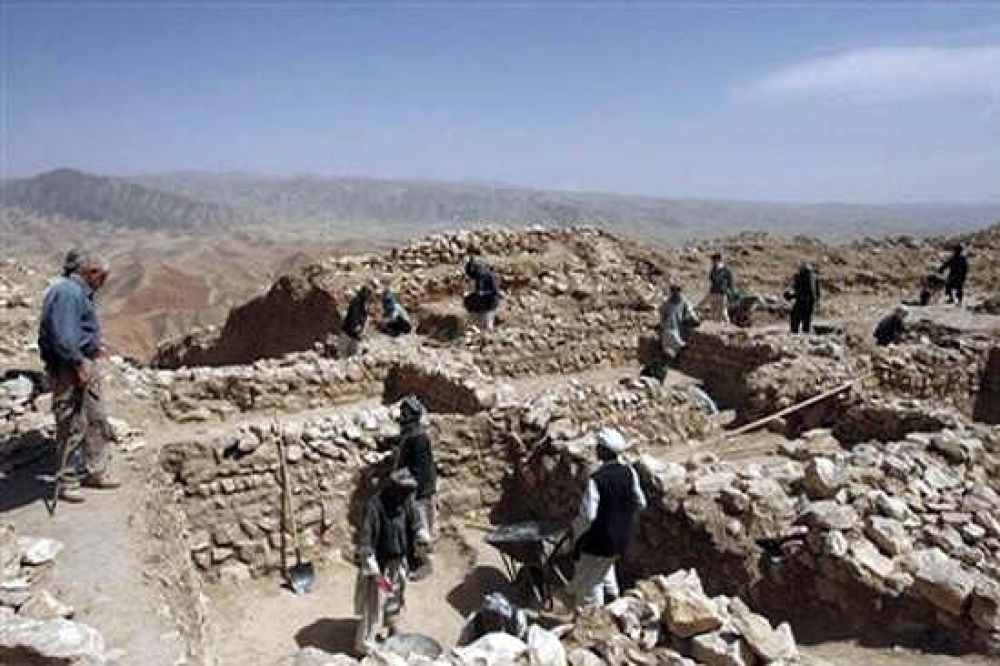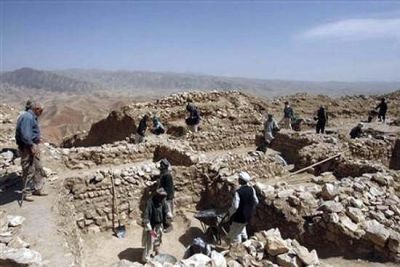

The Ancient city of Balkh, once a center of Buddhism, Zoroastrianism, and Islam, offers an evocative glimpse into Afghanistan’s rich past. Visitors can spend hours walking through the remnants of old city walls, fortifications, and the remains of an ancient mosque. While traversing the grounds, the stories and lives of ancient civilizations seem to come alive, making it a profound experience for history enthusiasts. Insightful guided tours by local historians can deepen the understanding of Balkh's significance within the Silk Road network.
The Shrine of Hazrat Ali, known as the Blue Mosque, is a masterpiece of Islamic art and architecture located in Mazari-Sharif. It is considered one of the holiest sites in Afghanistan, attracting thousands of pilgrims yearly. Visitors can marvel at the intricate tile work, majestic domes, and the calm spiritual ambiance of the mosque grounds. Engaging with pilgrims and partaking in the communal gatherings will give visitors a deeper understanding of the local culture and religious practices.
The ancient bazaar in Balkh is a bustling marketplace that continues to thrive as it did centuries ago. Here, visitors can immerse themselves in the local culture, haggling for traditional textiles, carpets, spices, and handcrafted items. Walking through the bazaar is like a journey through time, providing a sensory feast with the aromas of local dishes, the vibrant colors of artisan crafts, and the energetic chatter of commerce. It’s an ideal place to find unique gifts and souvenirs while experiencing the region's economic heart.
The Tomb of Rabia Balkhi, a revered poetess in Persian literature, stands as a cultural and historic landmark in Balkh. Visitors can pay their respects and learn about her contributions to Persian poetry. The site resonates with the spirit of her pioneering work, which broke barriers for women poets to come. A walk through the surrounding garden provides a peaceful retreat where visitors can ponder the themes of love and freedom that are central to Rabia Balkhi's verse.
The massive walls of the Ancient Fortress of Balkh, also known as 'Bala Hisar,' are a testament to the city’s historical importance. Visitors can explore the ruins and climb the surviving wall segments, gaining panoramic views of the surrounding landscape. Intrepid explorers can weave through the fortress's remnants, working to picture the grandeur and strategic significance it once held on the Silk Road. The site's enduring legacy provides a tangible connection to the vast array of armies and travelers that have passed through the region.
The Nine Domes of Balkh is a remarkable example of early Islamic architecture in Afghanistan. The site's tranquility juxtaposes its complex history, marked by the rise and fall of empires. Visitors can contemplate the nine domed structures that have withstood the ravages of time, each telling a story of the city's religious and architectural heritage. Photography enthusiasts will particularly enjoy capturing the intricate brickwork patterns and the play of light within these historic edifices.
Wrestling, known locally as 'Buzkashi,' is an ancient and popular sport in Afghanistan, and the plains near Balkh often host these lively competitions. Visitors have the unique opportunity to witness the physical prowess and horsemanship of local athletes as they vie for a prize in a test of strength and skill. Experiencing a live Buzkashi match encapsulates the spirit of Afghan culture and makes for an unforgettable outing for those interested in traditional sports.
The Khwaja Abu Nasr Parsa Shrine is a stunning green-domed mausoleum and a site for Sufi gatherings. Visitors to Balkh can respectfully join in these spiritual ceremonies, known as 'zikr,' where devotees engage in rhythmic chanting and prayer. The gatherings are a vibrant display of faith and community, offering a unique insight into Sufi practices within Afghanistan. Amidst the echoing chants and communal energy, visitors can experience a sense of serenity and camaraderie.
Balkh and its surroundings are known for exquisite handicrafts, including textiles, ceramics, and metalwork. Travelers can visit local workshops to observe artisans at work, learning about the time-honored techniques passed down through generations. Visitors can also try their hand at some of the crafts, creating a personal connection with the region’s artistic traditions. Engaging with these artisans supports the local economy and preserves invaluable cultural skills and knowledge.
No visit to Balkh is complete without experiencing the local cuisine. A chaikhana, or tea house, offers a welcoming environment to savor traditional Afghan dishes like Kabuli Palaw, mantu, and naan bread. Sharing a meal in a chaikhana is also a moment to engage with locals, often leading to heartwarming conversations and a deeper insight into Afghan hospitality. Besides the food, don’t miss out on trying the famous Afghan green tea, a staple in every household and establishment.
